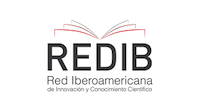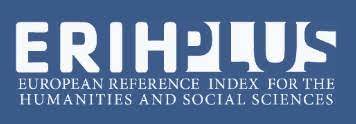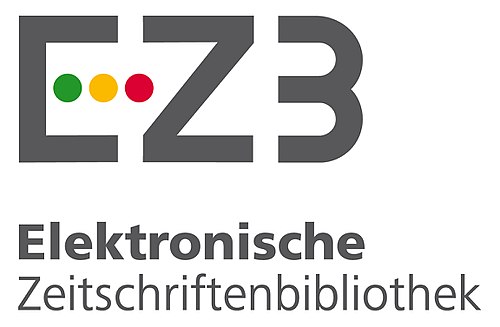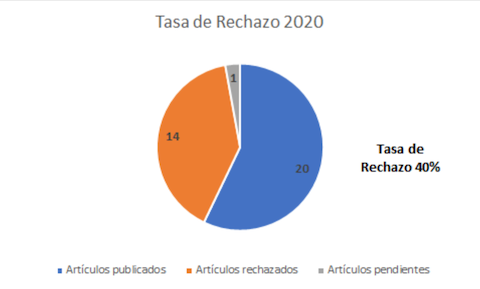Trends and challenges in operational safety training research in the Fuerza Aérea Colombiana
DOI:
https://doi.org/10.18667/cienciaypoderaereo.763Keywords:
Education, training research, human factors, training, safetyAbstract
The article aims to analyze the current state of the formative research generated in the Master's Degree in Operational Security (Maeso) of the Graduate School of the Colombian Air Force (EPFAC), with the intention of visualizing the academic products and the projection of learning outcomes in the program since its inception. Likewise, it seeks to explain the elements that present the interests of the students and the current lines of research, in order to establish challenges in the formation of specialized professionals. It also seeks to recognize strengths and research needs, problems of interest and areas of study that allow strengthening the field of study of operational security in Colombia. Among the results found, the socio-critical analysis of the problems of the aeronautical context from the point of view of operational safety is interpreted, and the interest in responding to the research field from qualitative research with consolidated products such as programs, protocols or guides. It was found that most of the works are programs that aim to prevent, mitigate and manage safety in civil and military aviation. The line of research on human factors has been the most extensive based on its direct impact on the positions held by the students, but it is followed by safety management with the works that are being developed.
Downloads
References
Aponte Díaz, J. L. y Corzo Zamora, M. A. (2019). El estrés térmico en las actividades de los vuelos de prueba en el Comando Aéreo de Combate No. 4: afectaciones y recomendaciones para su control [tesis de maestría, Escuela de Posgrados de la Fuerza Aérea Colombiana]. Repositorio institucional Epfac. https://cutt.ly/WV35KkW
Arboleda Medina, A., Ramírez, B., Ariza Ariza, L. G., Rodríguez Guerrero, N. I. (2020). Estudio de presencia y afectación del síndrome de burnout en instructores de TH-67, en la Escuela de Helicópteros de las Fuerzas Armadas de Colombia. Revista Ciencia y Poder Aéreo, 15(2), 6-17. https://cutt.ly/xV36I9A
Bernal Torres, C. A. (2006). Metodología de la investigación. Pearson Prentice Hall.
Bayley, Z. (1995). La incorporación de la investigación al perfil profesional del pregrado. Universidad Simón Rodríguez.
Campo Pérez, D. (2019). Modelamiento del error humano en los pilotos de A29B del Comando Aéreo de Combate No. 2, basado en el modelo HEMA en situaciones de emergencia [tesis de maestría, Escuela de Posgrados de la Fuerza Aérea Colombiana]. Repositorio institucional Epfac. https://cutt.ly/2V8qoTA
Cusick, S. K., Cortés, A. I. y Rodrigues, C. C. (2017). Commercial aviation safety. McGraw-Hill Education.
Escuela de Posgrados de la Fuerza Aérea Colombiana (Epfac). (2021). Lineamientos para la articulación de la investigación. https://cutt.ly/oV8tFoi
Fuerza Aérea Colombiana (FAC). (2020). Manual de investigación para la elaboración de trabajos de grado (4.a ed.). Escuela Militar de Aviación Marco Fidel Suárez. https://cutt.ly/NV8iQgM
Flores, R. C. (2022). Prácticas investigativas en educación ambiental. Revista Latina de Sociología, 11(1), 88-113. https://doi.org/10.17979/relaso.2021.11.1.7179
Giraldo Montoya, J. P. y Lizcano Gómez, Y. A. (2018). Programa de prevención para la administración del riesgo por factor técnico, aplicado a la flota de aeronaves T-37B [tesis de maestría, Escuela de Posgrados de la Fuerza Aérea Colombiana]. Repositorio institucional Epfac. https://cutt.ly/EV8qWje
López Noguera, F. (2002). El análisis de contenido como método de investigación. XXI: Revista de Educación, (4), 167-180. https://dialnet.unirioja.es/servlet/articulo?codigo=309707
Maestría en Seguridad Operacional (Maeso). (2019a). Documento maestro de la Maestría en Seguridad Operacional. Epfac.
Maestría en Seguridad Operacional (Maeso). (2019b). Proyecto Educativo de Programa. Epfac.
Mallard, D. (2016). The human factor in safety and operations. EHSToday. https://www.ehstoday.com/training-and-engagement/article/21917614/the-human-factor-in-safety-and-operations.
Presidencia de la República. (2019, 25 de julio). Decreto 1330 de 2019. Por el cual se sustituye el Capítulo 2 y se suprime el Capítulo 7 del Título 3 de la Parte 5 del Libro 2 del Decreto 1075 de 2015 -Único Reglamentario del Sector Educación. Diario Oficial 51.025. https://www.mineducacion.gov.co/1780/articles-387348_archivo_pdf.pdf
López Páez, G. A. y Corzo Zamora M. A. (2019). Herramienta de entrenamiento basada en funcionamiento neuropsicológico y fisiológico en operadores de Aeronaves Remotamente Tripuladas SCAN EAGLE de la Fuerza Aérea Colombiana [tesis de maestría, Escuela de Posgrados de la Fuerza Aérea Colombiana]. Repositorio institucional Epfac. https://cutt.ly/CV8lWfR
Montoya Agudelo, C. A., Boyero Saavedra, M. R., Montenegro Velandia, W. Arango Benjumea, J. J. (2017). El factor humano como elemento competitivo para la organización moderna. https://www.escolme.edu.co/wp-content/uploads/2017/03/El-factor-humano-como-elemento-competitivo-para-la-organizacio%CC%81n-moderna.pdf
Packer, M. J. (2013). La ciencia de la investigación cualitativa. Ediciones Uniandes.
Organización de Aviación Civil Internacional (Oaci). (2013). Manual de Gestión de la Seguridad Operacional (3.a ed.). https://cutt.ly/zV8xHwQ
Padrón Guillén, J. (2001). El problema de organizar la investigación universitaria. Línea de investigación en enseñanza/aprendizaje de la investigación. Diálogos Universitarios de Postgrado, (11), 9-33.
Rocha Castillo, S. (2018). Plan de acción para la prevención de accidentes aéreos en instrucción de vuelo desde el sistema de clasificación y análisis de factores humanos (HFACS), asociados a la aviación comercial en Colombia como contribución a la seguridad operacional [tesis de maestría, Escuela de Posgrados de la Fuerza Aérea Colombiana]. Repositorio institucional Epfac. https://repositorio.crai-fac.com/handle/20.500.12963/435
Rodríguez Albán, M. (2012). Líneas de investigación y dialogismo en los procesos investigativos en el campo universitario ecuatoriano. Latinoamérica. Revista de Estudios Latinoamericanos, (54), 155-181. http://dx.doi.org/10.22201/cialc.24486914e.2012.54.56478
Rodríguez Sossa, J. C. y Malpica, D. L. (2019). Propuesta de un procedimiento para la utilización del maletín de vuelo electrónico a partir de la determinación de cargas de trabajo en cabina para los pilotos de helicóptero BELL 212 de CACOM-4 [tesis de maestría, Escuela de Posgrados de la Fuerza Aérea Colombiana]. Repositorio institucional Epfac. https://cutt.ly/mV8xu0V
Salas, E., Maurino, D. y Curtis, M. (2010). Human factors in aviation: an overview. Human factors in aviation (E. Salas y D. Marino, eds.; pp. 3-19). https://doi.org/10.1016/B978-0-12-374518-7.00001-8
Tamayo y Tamayo, M. (2003). El proceso de la investigación científica (4.a ed.). Editorial Limusa.
Uribe Taborda, A. E. (2019). Análisis de radiaciones de frecuencia emitidas por los equipos de inteligencia de señales a bordo de la aeronave King FAC-5748 [tesis de maestría, Escuela de Posgrados de la Fuerza Aérea Colombiana]. Repositorio institucional Epfac. https://cutt.ly/YV8cHaL
Downloads
Published
Issue
Section
License
Copyright (c) 2022 Escuela de Postgrados de la Fuerza Aérea Colombiana

This work is licensed under a Creative Commons Attribution 4.0 International License.
Assignment of Copyrights
Authors assign Ciencia y Poder Aéreo journal the exclusive rights (reproduction, distribution, public communication, and transformation) to exploit and commercialize their work, in whole or in part, in all the formats and modalities of present or future exploitation, in all languages, throughout the life of the work and throughout the world.
All contents published in Ciencia y Poder Aéreo journal are licensed under a Creative Commons Attribution 4.0 International License, whose complete information is available at http://creativecommons.org/licenses/by/4.0/
Under the terms of this license, users are free to download, print, extract, archive, distribute and publicly communicate the content of articles, provided that proper credit is granted to authors and Ciencia y Poder Aéreo, scientific journal of the Graduate School of the Colombian Air Force. Except when otherwise indicated, this site and its contents are licensed under a Creative Commons Attribution 4.0 International License.
For other uses not considered under this license it is required to contact the Director or the Editor of the journal at the e-mail address cienciaypoderaereo1@gmail.com.
The Graduate School of the Colombian Air Force and this publication are not responsible for the concepts expressed in the articles, including the metadata or the affiliation stated by authors. This is the full responsibility of the authors.






















